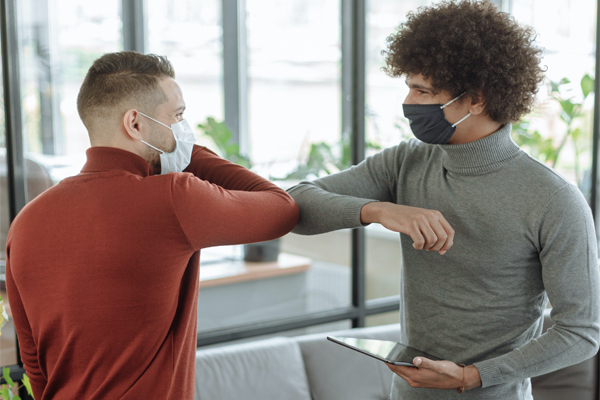Around half of American staff want co-workers to produce ‘proof of vaccination’ for workplace return, according to a new study.
As vaccination rates ramp up across the US, with about 27% of Americans fully vaccinated, 49% of workers believe that employers should require vaccination proof for employees returning to the workplace. In fact, 35% believe that non-vaccinated employees should not be permitted to work with co-workers in-person, according to a new survey carried out by Ipsos for Eagle Hill Consulting.
In short, significant Covid-19 challenges remain for employers given the recent pause on the Johnson & Johnson vaccine, increasing cases in many states and concerns about highly infectious new variants. “The good news is that the US is making incredible progress when it comes to getting shots in arms, which is helping to drive business and economic recovery,” stated Eagle Hill Consulting President and CEO Melissa Jezior. “But, we’re continuing to see employee concerns and divided views on a wide range of Covid-19 issues, which creates an increasingly complicated situation for employers.”
VIEWS ON UNVACCINATED CO-WORKERS
Workers however “remain split on employee vaccine requirements, and we’re also seeing differing views on whether workers should provide proof of vaccinations before returning to work,” according to Jezior. “Another sticky issue for employers is how to handle employees who choose to remain unvaccinated – should they be permitted to interact in-person with colleagues and customers or be given special allowances to work from home?”
The bottom line for employers is that “they have to keep the lines of communication open with employees and really listen and respond to their concerns”, explained Jezior. “Employees know their workplace will be different, but managing any type of change is often met with resistance. The stakes are even higher when workplace changes involve employee health and safety.”

In addition to split views on vaccination mandates, incentives and proof, the research finds that workers are split on how to manage unvaccinated workers. Around 55% of workers say non-vaccinated employees should not be given special allowances to work from home. Nearly half of workers (44%) say non-vaccinated employees should not be allowed to travel for work; with 39% suggesting non-vaccinated employees should not be permitted to work in-person with customers; and 35% say non-vaccinated employees should not be allowed to work in-person with co-workers. However, the vast majority of workers (83%) say non-vaccinated employees should be able to stay with their employer.
WORKPLACE RETURN CONCERNS
Employees also have mixed views on returning to the workplace, reveals the research. Many workers feel employers should exercise caution in re-opening workplaces, with 45% indicating employers should wait to re-open workplaces as vaccines roll out; up from 42% in February. Workers also feel differently about returning to work, depending on their age. For example:
- Gen Z and Millennials are most excited about returning to workplace, 47% and 30%, respectively; which is substantially higher than their Gen X (26%) and Boomer (15%) counterparts.
- Yet, younger workers are more concerned about contracting Covid-19 at work; Gen Z at 28%, Millennials at 26%, Gen X at 23%, compared to Baby Boomers at 14%.
- Also, younger workers feel significantly more anxious about returning to the workplace; Gen Z at 25%, Millennials at 20%, compared to 13% of Gen X at 12% of Boomers.
- Younger workers also are more concerned about balancing work and home; Gen Z at 23%, Millennials at 21%, Gen X at 17%, compared to 9% of Boomers.

COVID TESTING & SAFETY
In terms of Covid-19 testing, 51% say that employers should cover the costs for any employer-mandated tests. Around 23% say the federal government should bear the costs, while 14% say insurance providers or state/local government (9%) should pay for required tests. Only 3% agree employees should pay.
When asked about the role employers should play with Covid-19 precautions now that vaccines are widely available, there was broad support for employer involvement. Around 84% concur that employers should require or encourage social distancing; and 81% agree on employers requiring or encouraging mask use. Around 74% want employers should encourage or require temperature checks; and 62% agree that employers should encourage or require personal protective equipment at work. Additionally, 57% support employers requiring or encouraging Covid-19 testing before entering the workplace.
Workers anticipate that their workplace will be different when they return. For example:
- More than half (51%) expect the number of people working from home will be different.
- Nearly half (47%) expect their physical workplace will be different.
- Almost half (45%) expect people will be working further apart.
- 43% expect requirements for sanitation like mask wearing will be different.
- 41% expect requirements for testing for Covid-19 symptoms will be different.
On a positive note, the majority of workers want to go back to the workplace; and are willing to be vaccinated if it’s required by their employer, according to another recent survey, as reported. Click here to read more.







































